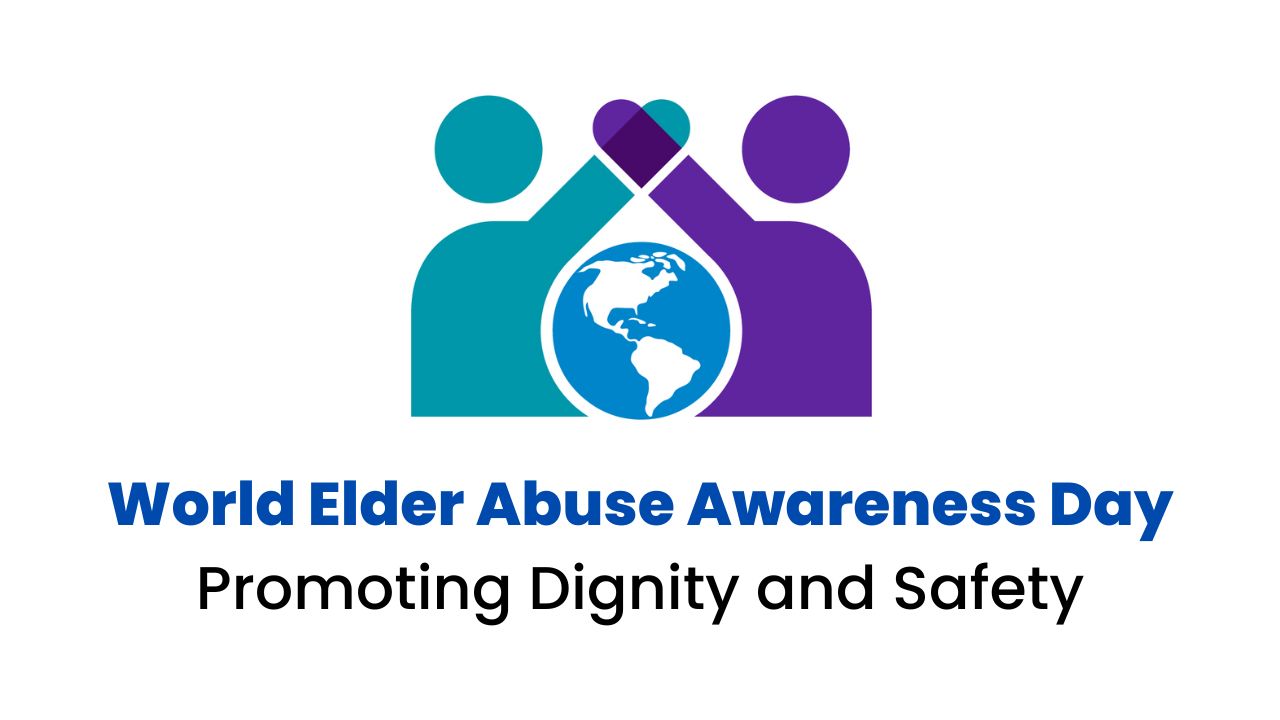Introduction
World Elder Abuse Awareness Day (WEAAD) is observed on June 15th each year to raise awareness about the mistreatment and abuse faced by older adults worldwide. This significant day aims to promote dignity, respect, and safety for older individuals and shed light on the urgent need for prevention and intervention. In this article, we delve into the importance of World Elder Abuse Awareness Day, its objectives, and how we can all contribute to protecting our seniors.
Understanding Elder Abuse
Elder abuse refers to any form of mistreatment, harm, or neglect experienced by older adults, often at the hands of those entrusted with their care. It can occur in various settings, including homes, nursing homes, or even within communities. Elder abuse takes many forms, such as physical, emotional, financial, or sexual abuse, as well as neglect and abandonment. These acts not only violate the rights of older individuals but also compromise their well-being and quality of life.
Raising Awareness
World Elder Abuse Awareness Day plays a crucial role in shedding light on the often overlooked issue of elder abuse. By raising awareness, we can bring this hidden problem into the spotlight, encouraging discussions, and fostering a sense of urgency in addressing the issue. The day serves as a platform for organizations, communities, and individuals to come together, share information, and educate others about the signs, consequences, and prevention of elder abuse.
Objectives of WEAAD
World Elder Abuse Awareness Day has several key objectives:
- Promoting awareness: WEAAD aims to increase public awareness about elder abuse, ensuring that individuals understand the signs, risk factors, and consequences of mistreatment.
- Preventing abuse: The day encourages proactive measures to prevent elder abuse by promoting policies, resources, and support systems that protect the rights and safety of older adults.
- Empowering individuals: WEAAD emphasizes the importance of empowering older individuals to recognize and assert their rights, enabling them to lead lives free from abuse.
- Encouraging reporting: WEAAD seeks to break the silence surrounding elder abuse and encourages individuals to report suspected cases, ensuring that appropriate action is taken to safeguard the well-being of older adults.
- Building collaborations: The day fosters collaboration among governments, organizations, and communities to develop comprehensive strategies and interventions that address elder abuse effectively.
Identifying Signs of Elder Abuse
To combat elder abuse, it is essential to be able to recognize the signs that may indicate mistreatment. Some common signs include:
- Unexplained injuries, bruises, or fractures
- Sudden changes in behavior or mood
- Social withdrawal or isolation
- Financial exploitation or sudden loss of assets
- Neglect, including poor hygiene, malnutrition, or inadequate medical care
Preventing Elder Abuse
Preventing elder abuse requires collective effort and vigilance. Here are some strategies to help protect older adults:
- Raise awareness: Educate yourself and others about elder abuse, its signs, and prevention strategies. Share information with friends, family, and community members to create a network of support.
- Promote respectful aging: Foster a culture that values and respects older adults, celebrating their contributions and promoting inclusion and dignity.
- Stay connected: Maintain regular contact with older relatives, friends, and neighbors. Social isolation can increase the vulnerability to abuse, so make an effort to stay connected and provide support.
- Encourage open communication: Create an environment where older adults feel comfortable discussing any concerns or incidents of mistreatment. Encourage them to report abuse or seek help if needed.
- Support caregivers: Caregiver stress can contribute to elder abuse. Offer support and resources to caregivers, helping them manage their responsibilities effectively and seek assistance when necessary.
- Advocate for policies: Advocate for policies and legislation that protect the rights of older adults and provide support systems to prevent and address elder abuse.
Reporting Elder Abuse
If you suspect or witness elder abuse, it is crucial to take action. Report your concerns to the appropriate authorities, such as Adult Protective Services or local law enforcement. They can conduct investigations, provide assistance, and ensure the safety of the affected older adult.
Conclusion
World Elder Abuse Awareness Day serves as a powerful reminder of our responsibility to protect and respect the rights of older adults. By raising awareness, promoting prevention strategies, and supporting victims, we can work towards a society that values and safeguards the well-being of our seniors. Together, let’s take a stand against elder abuse and ensure that every older adult can live a life of dignity, safety, and respect.

I have been surfing online more than 3 hours today, yet I never found
any interesting article like yours. It is
pretty worth enough for me. In my view, if all website
owners and bloggers made good content as you did, the web will be a lot more useful than ever before.